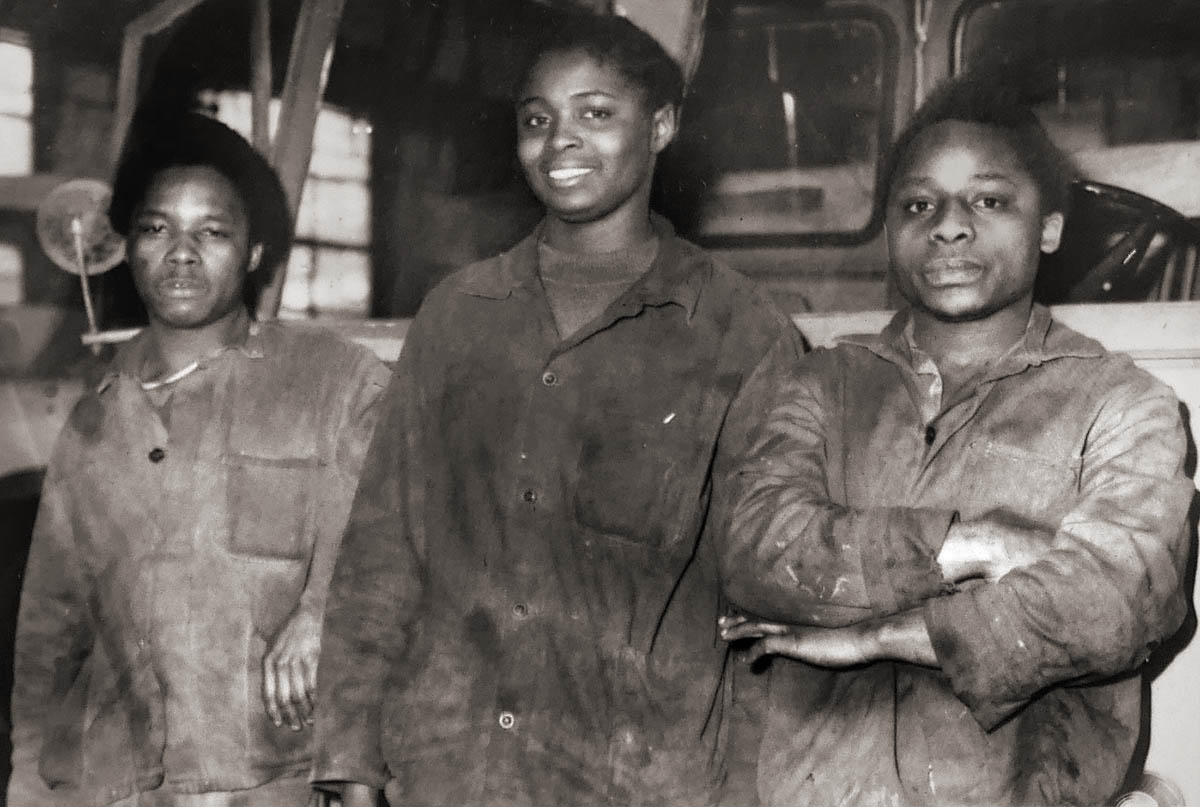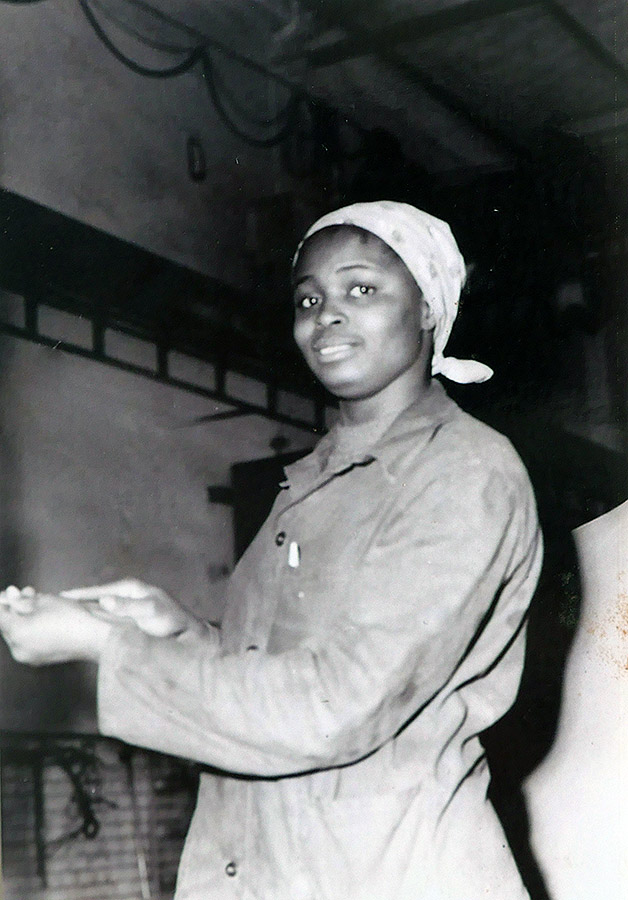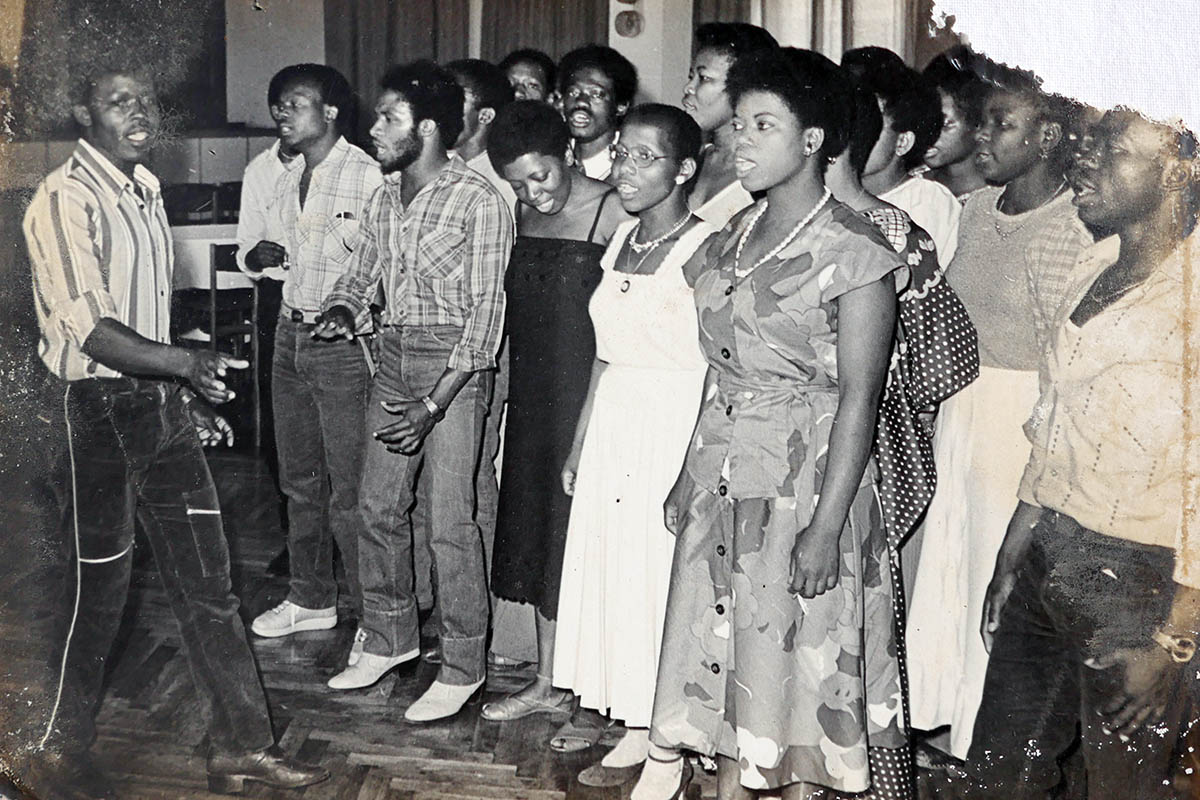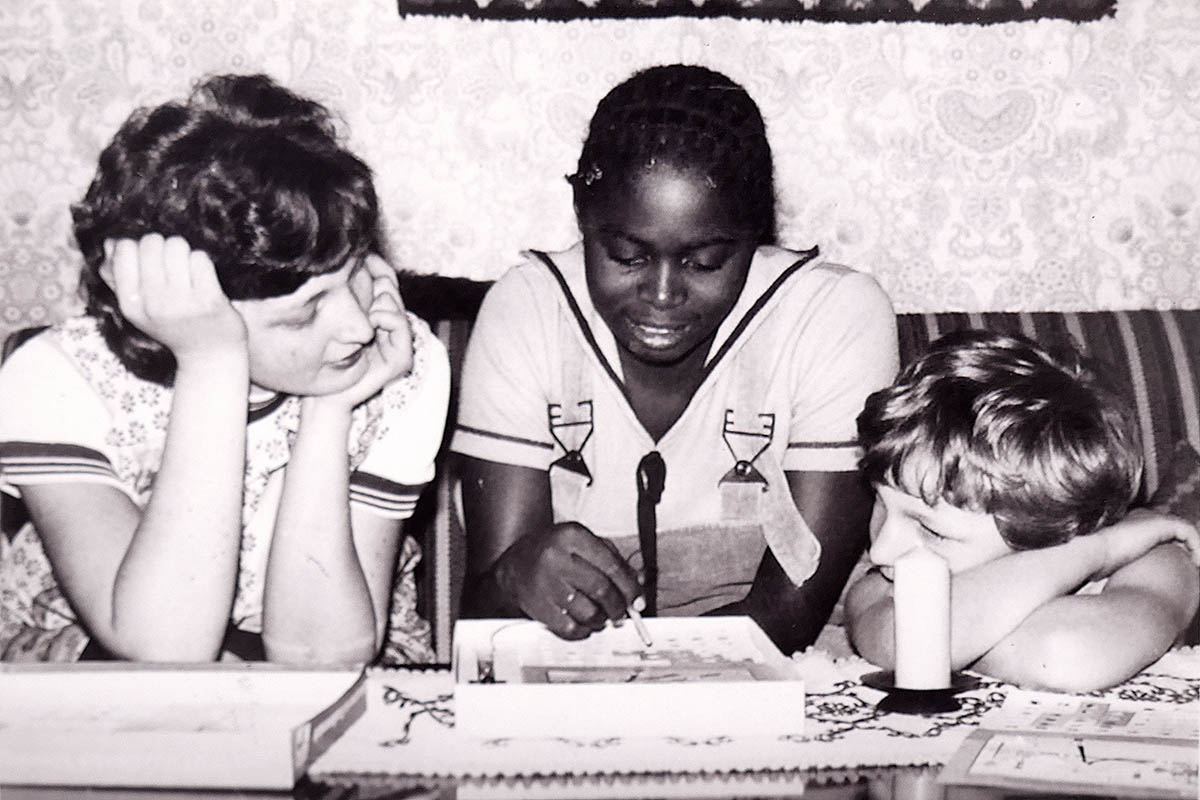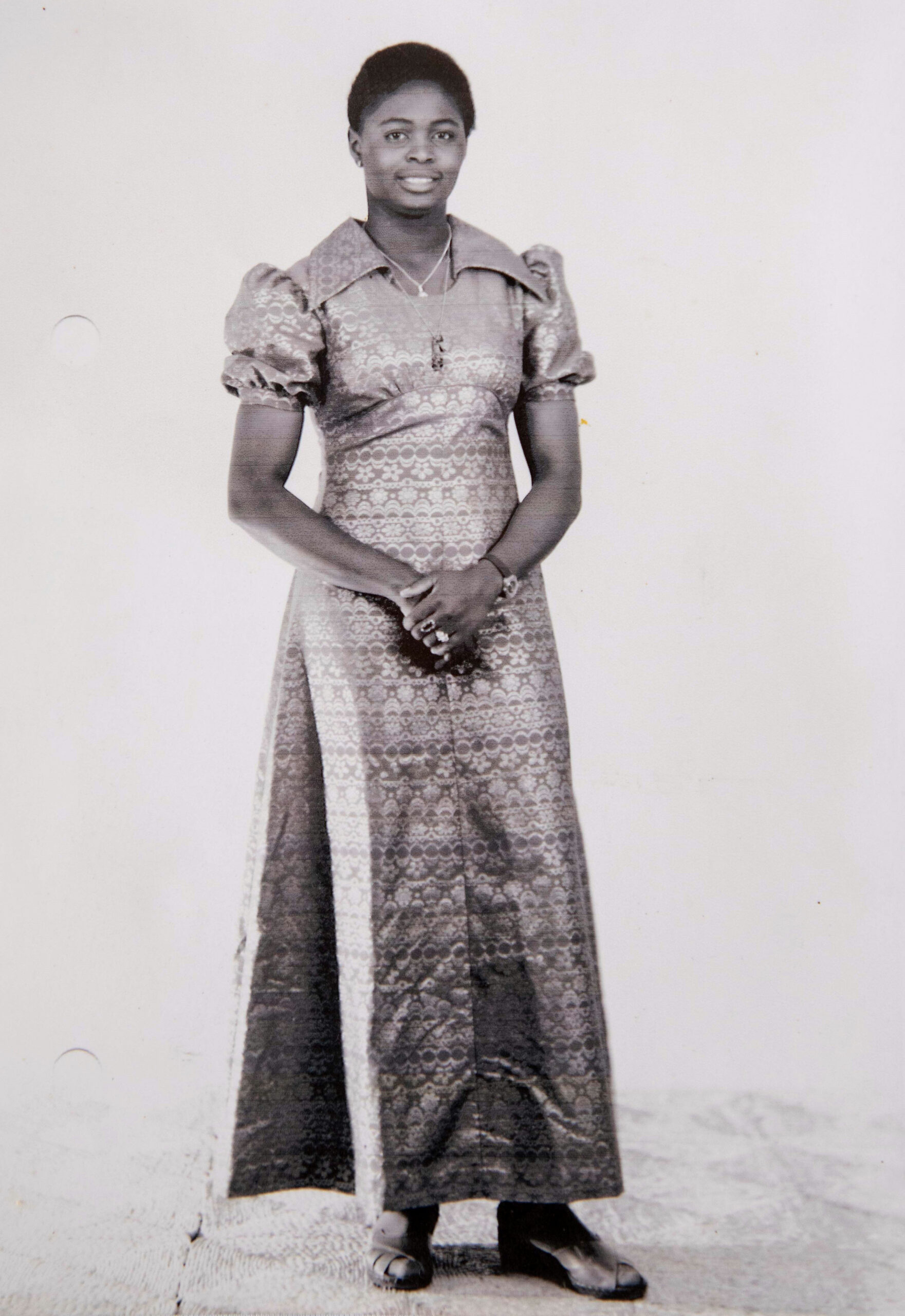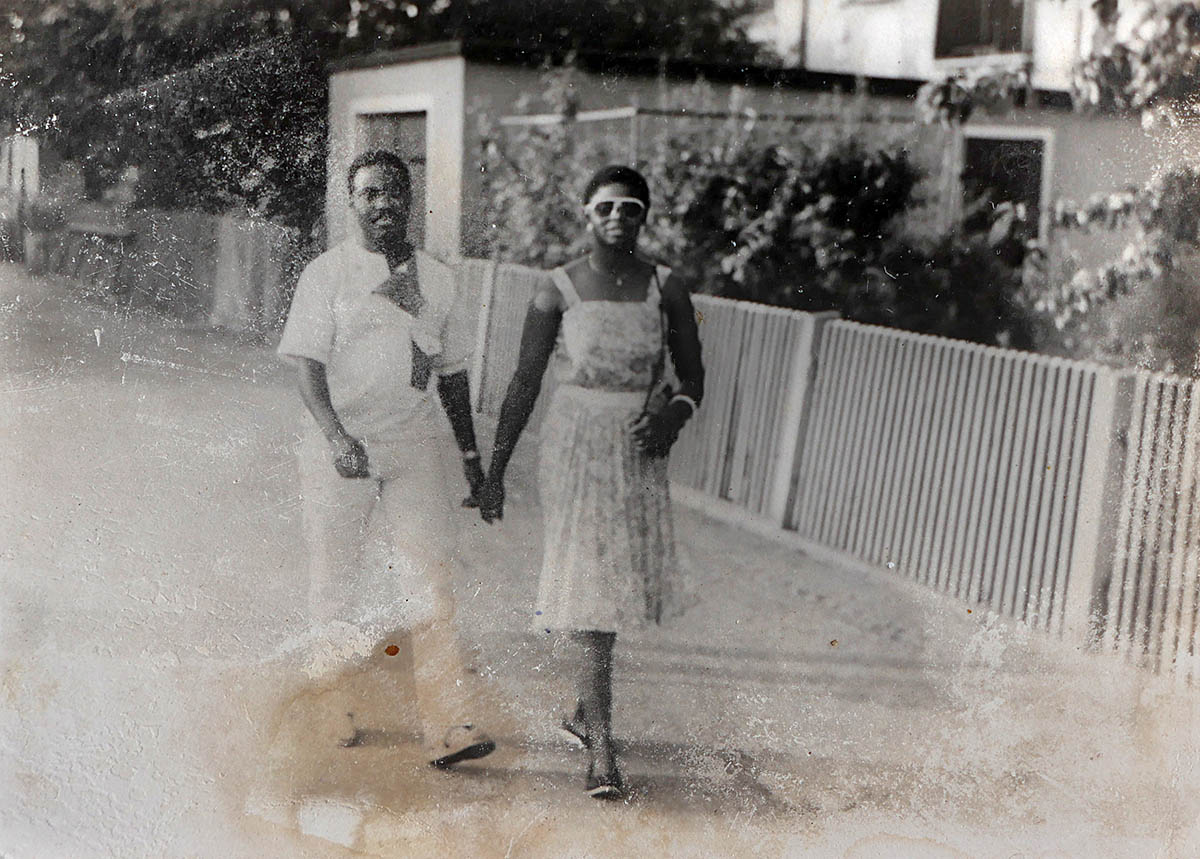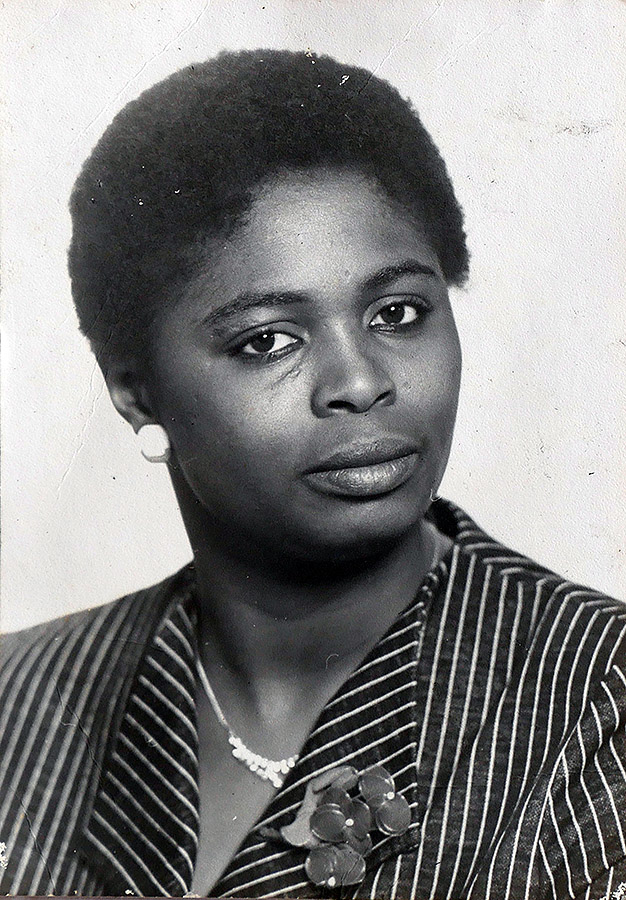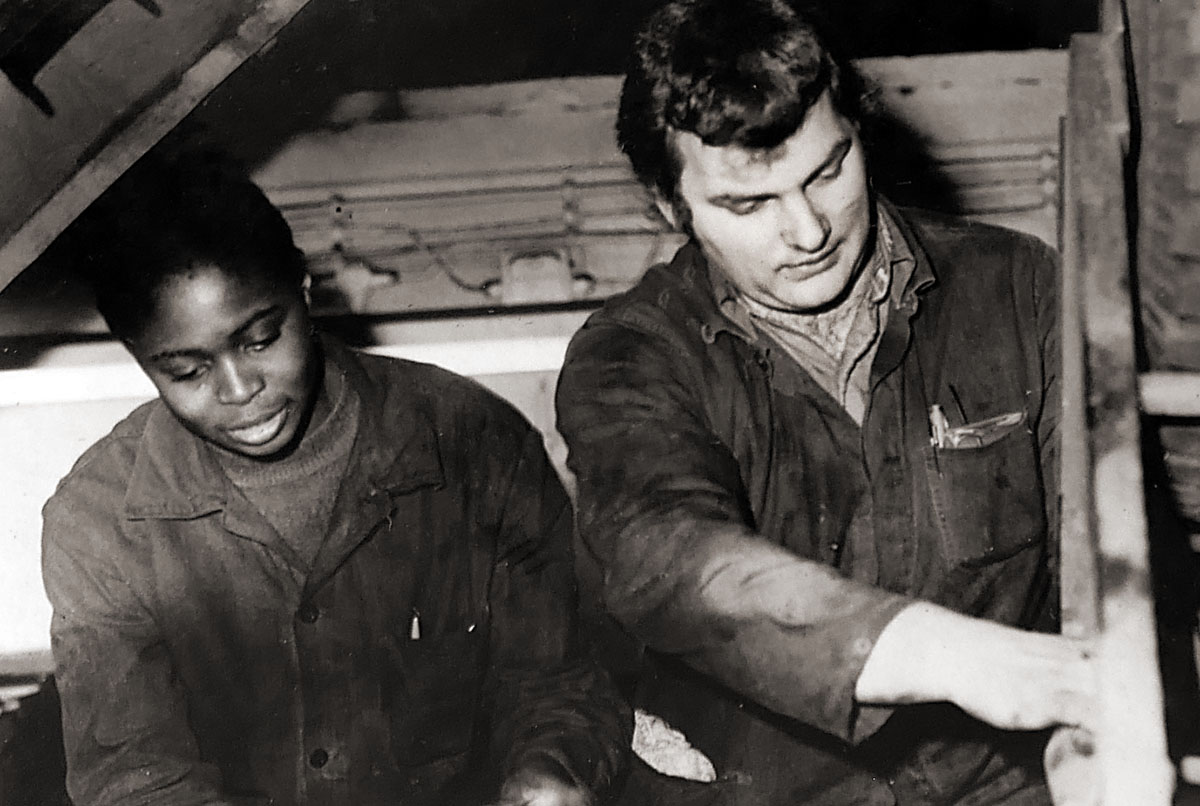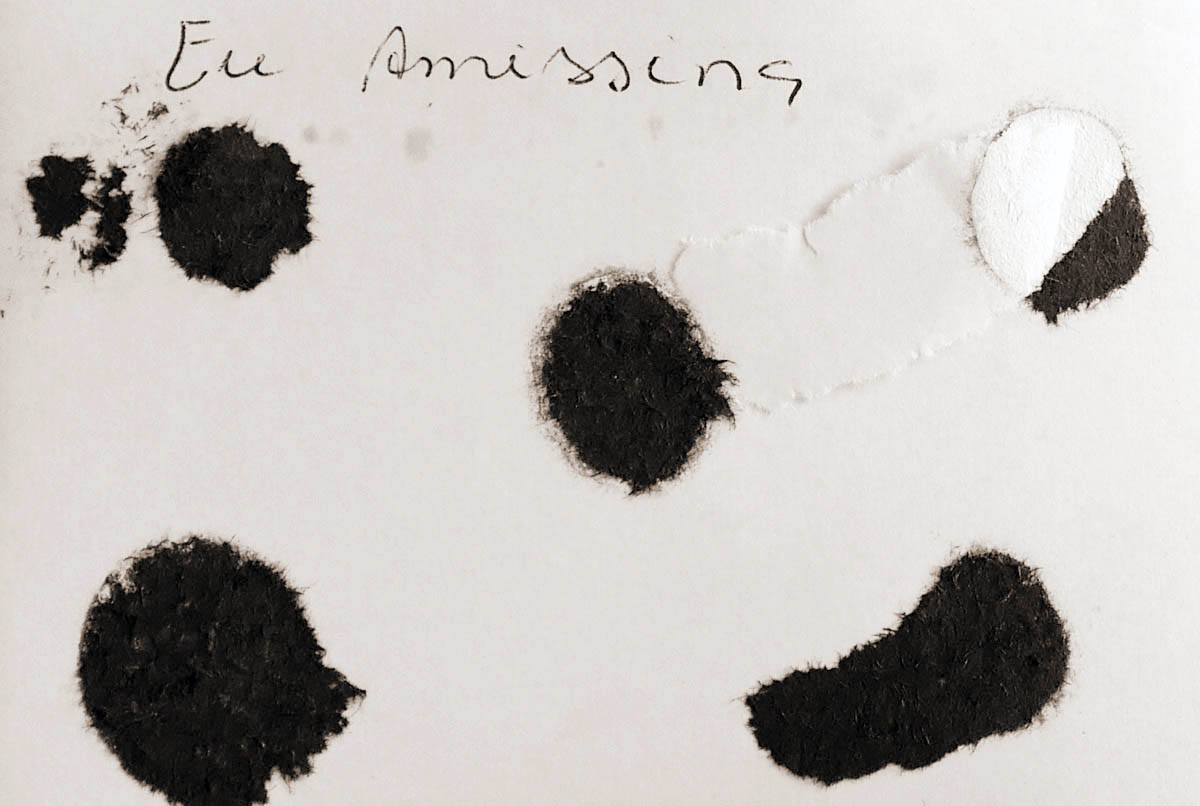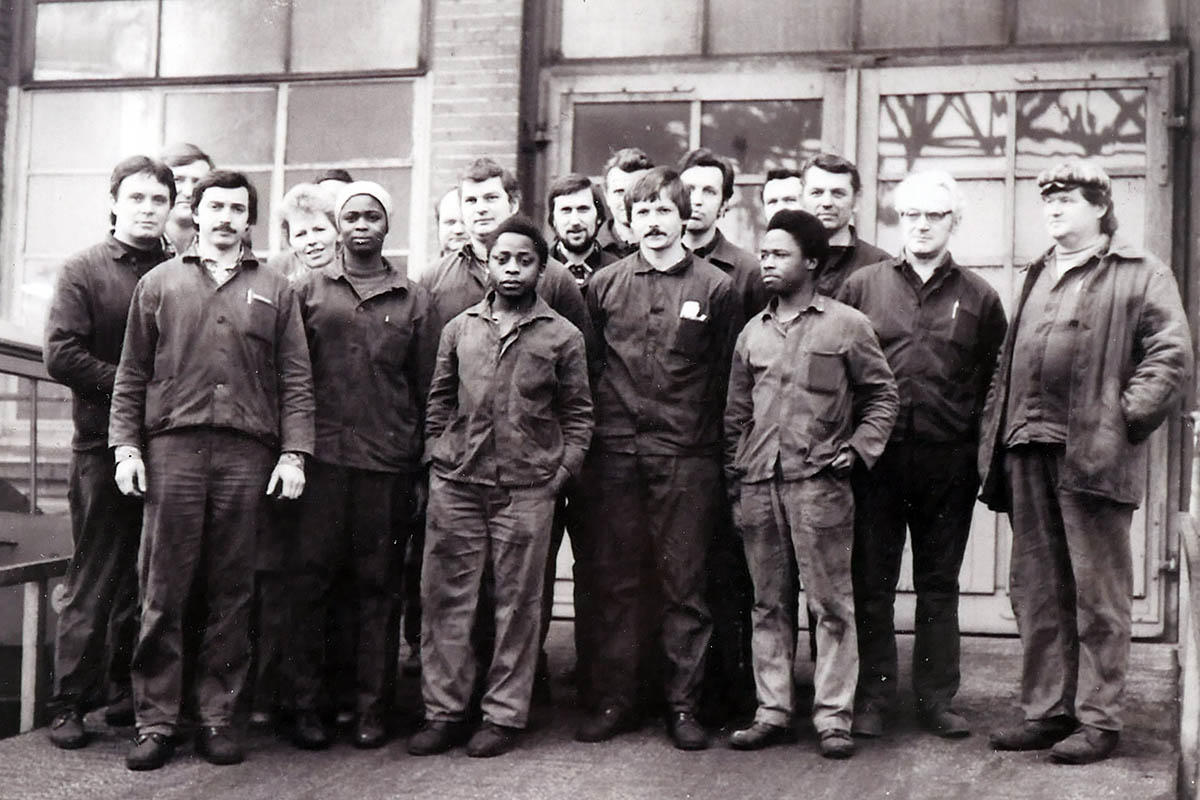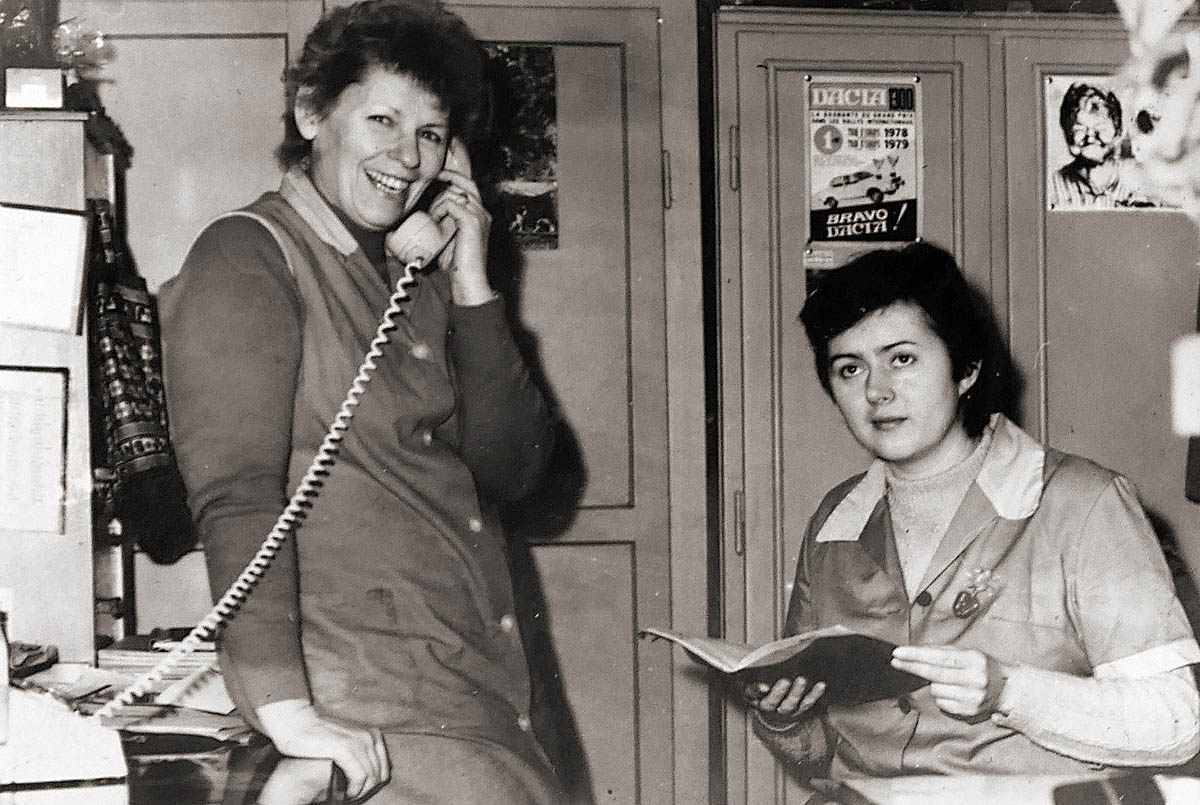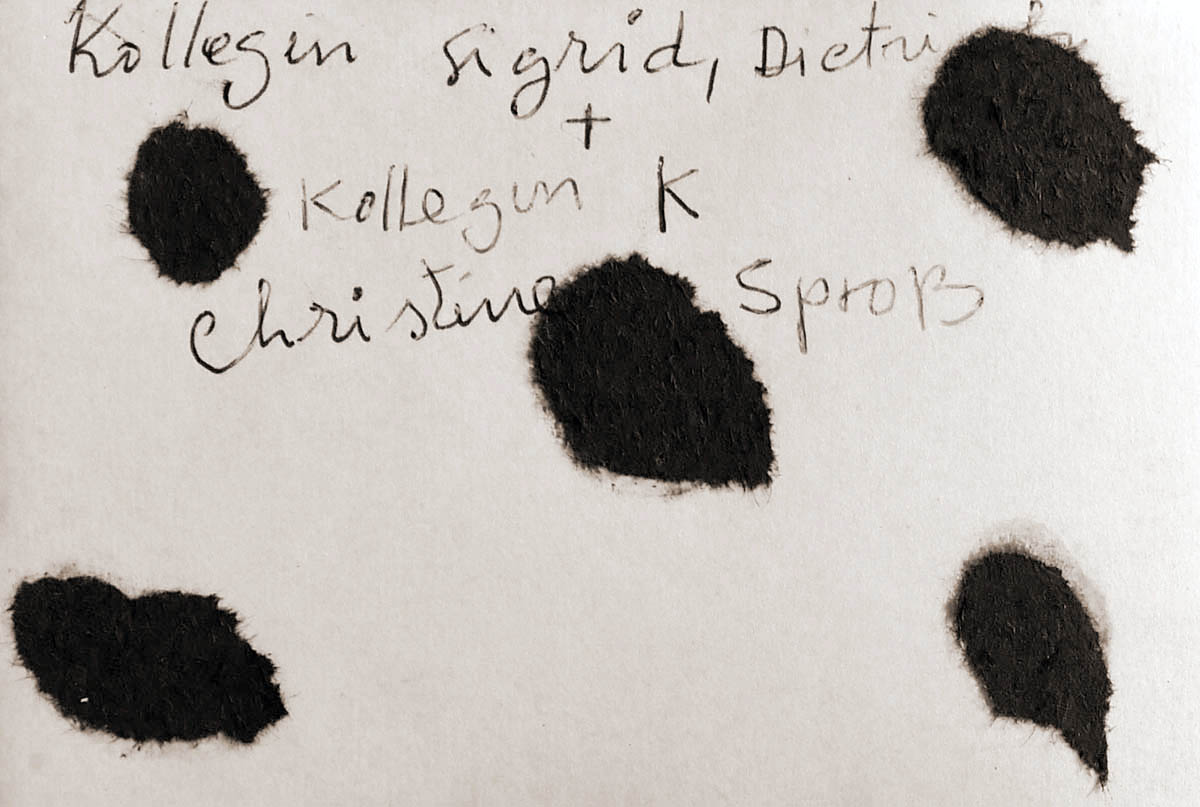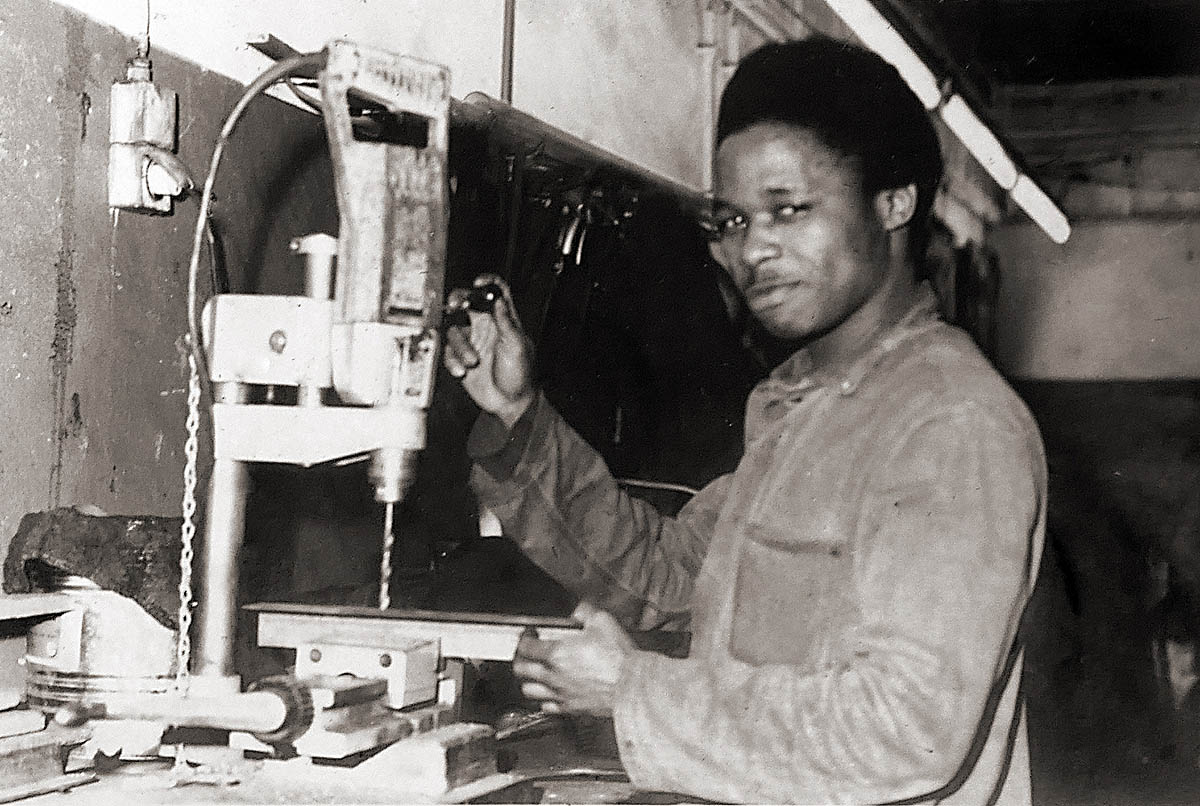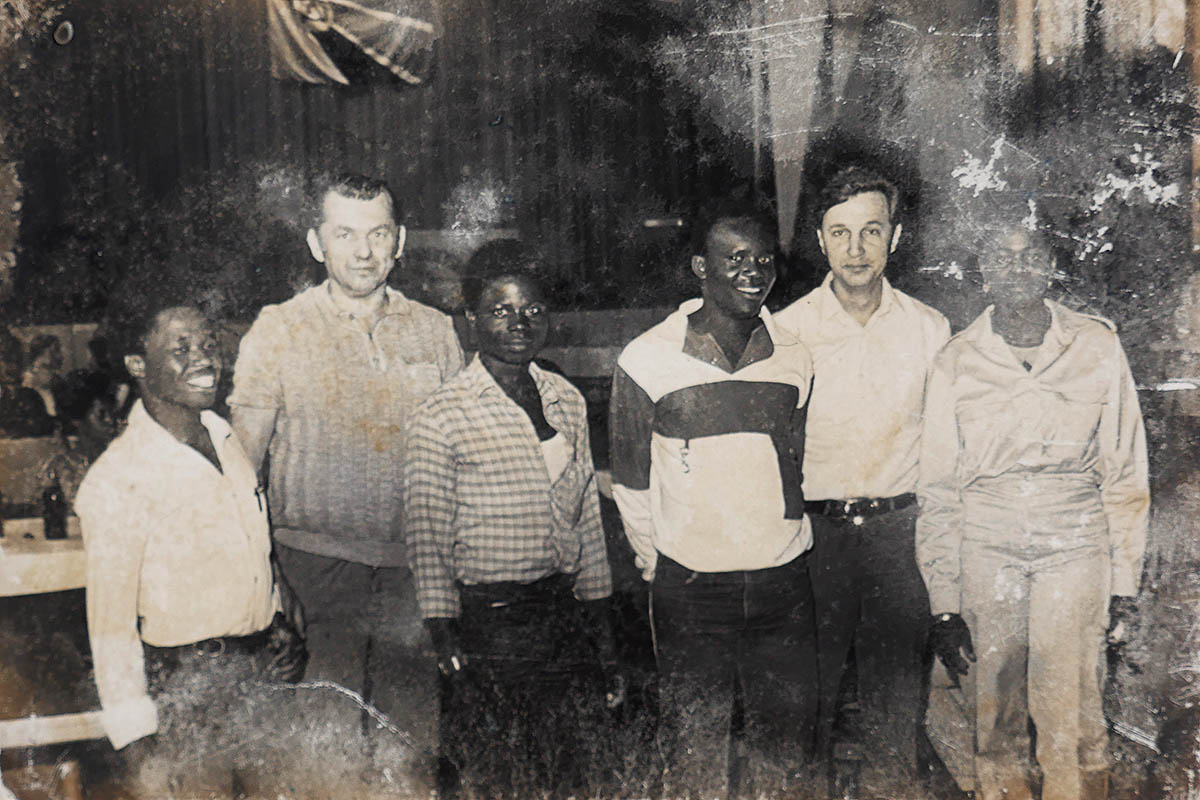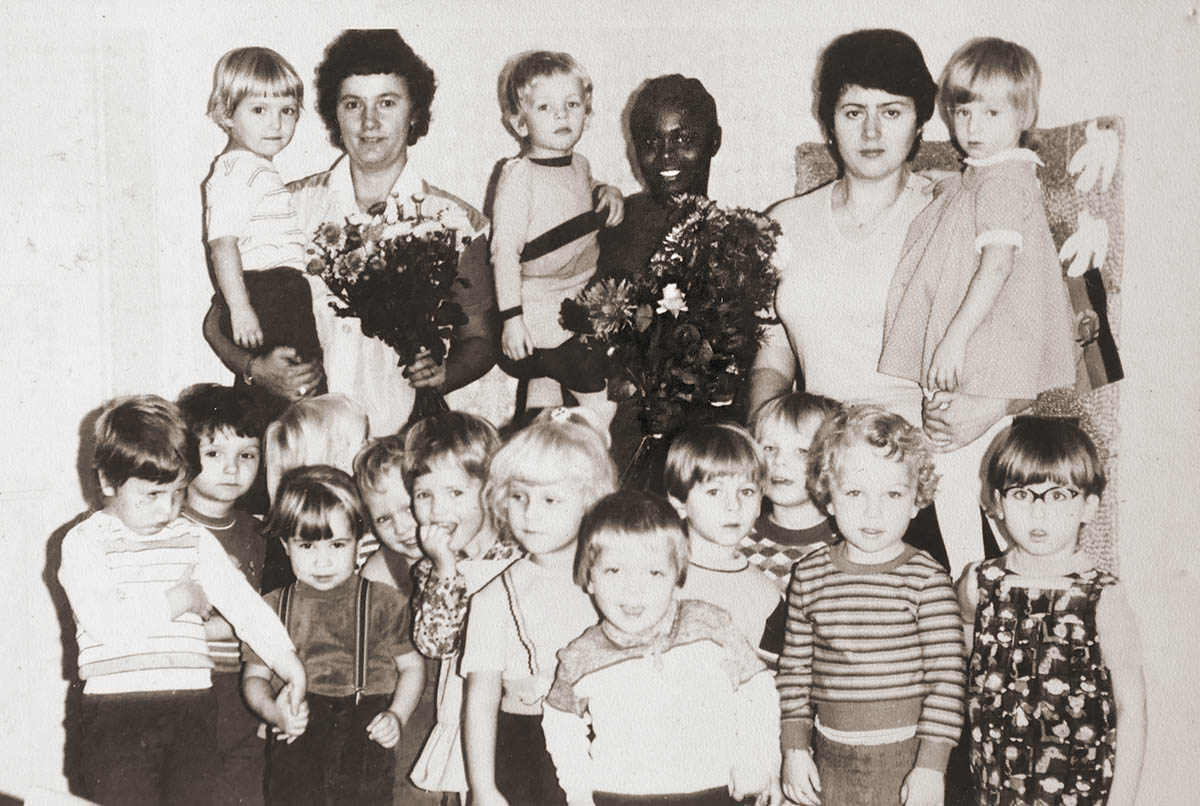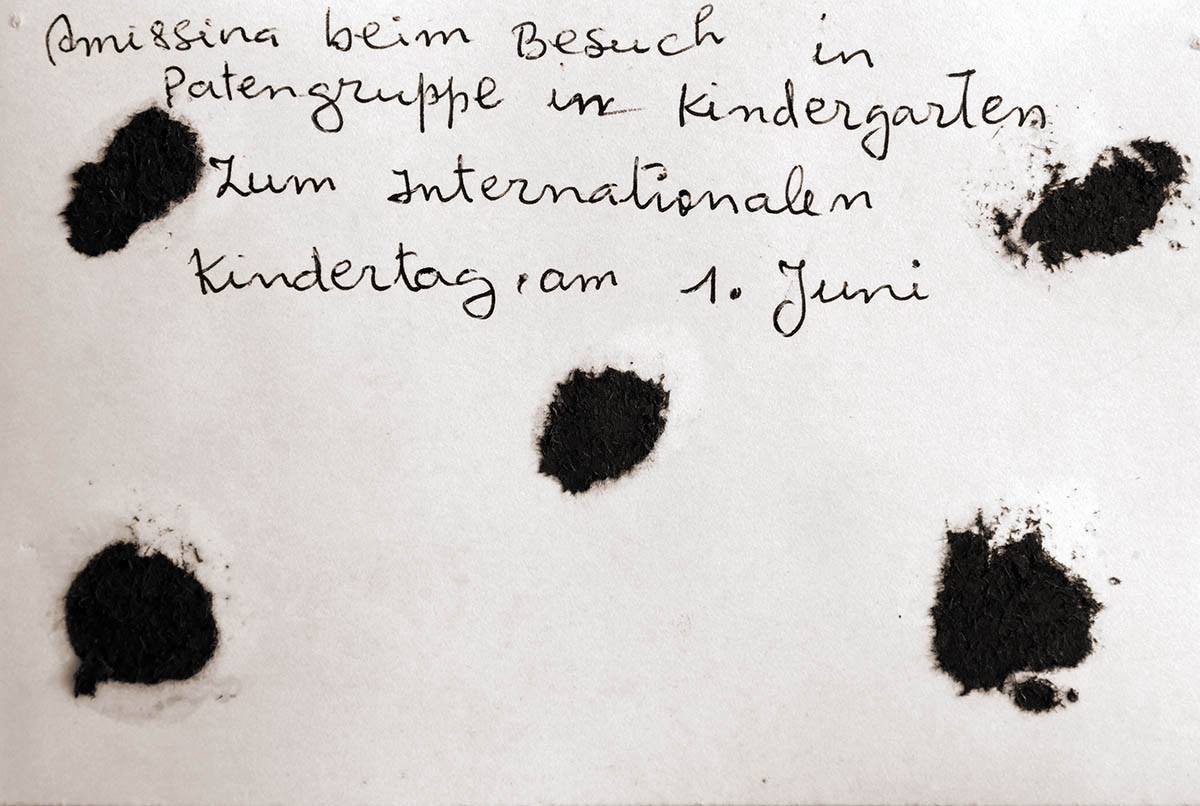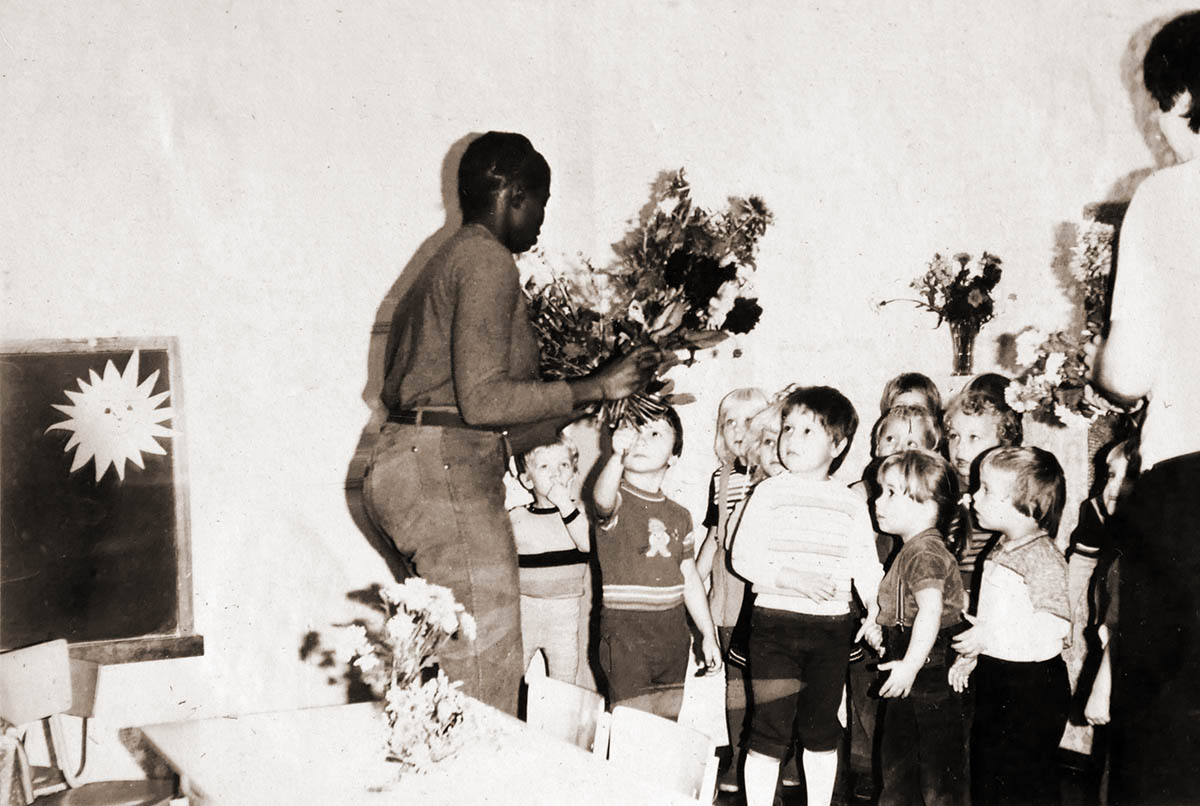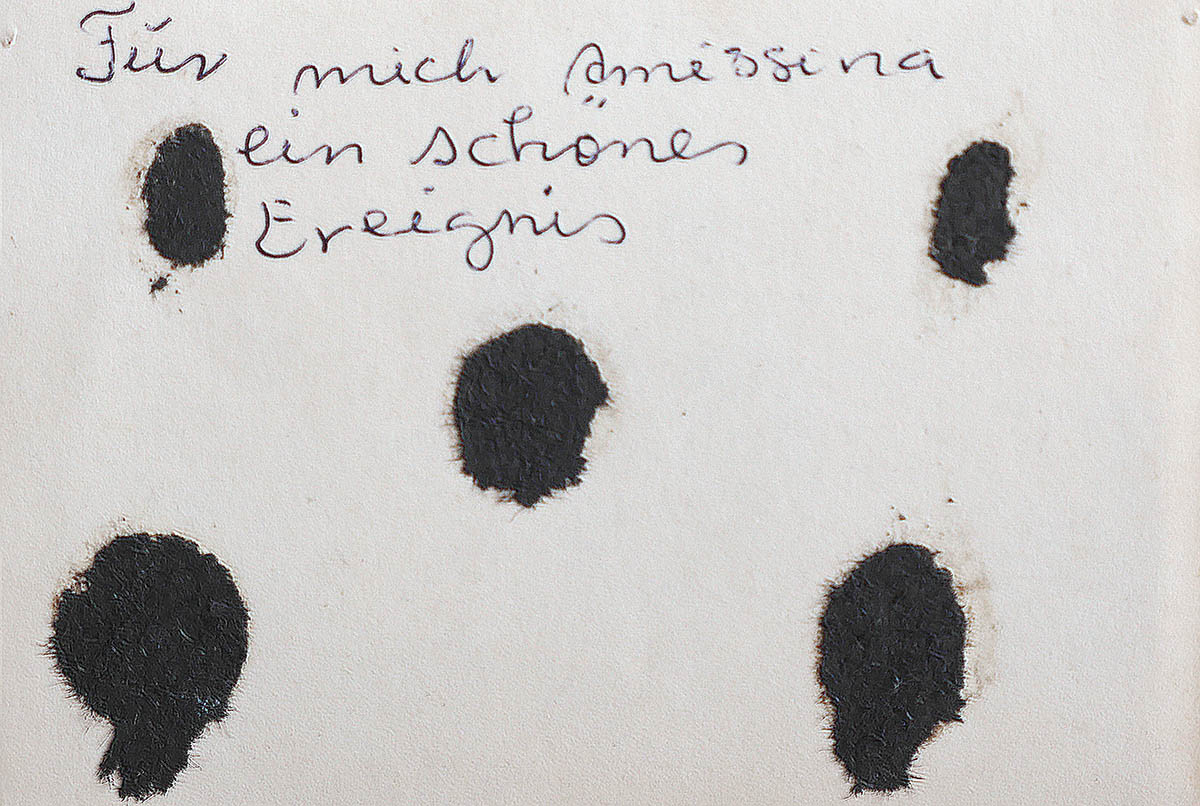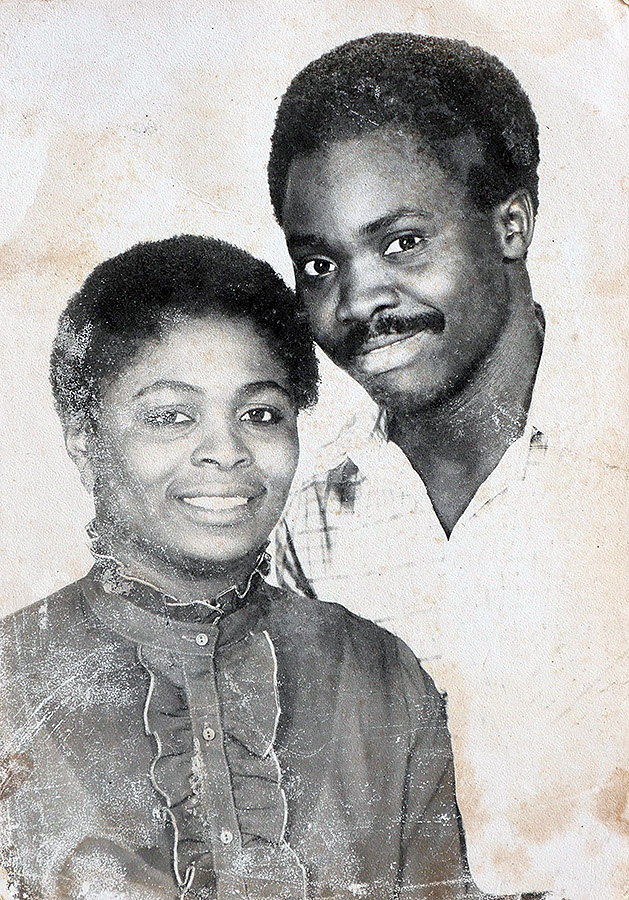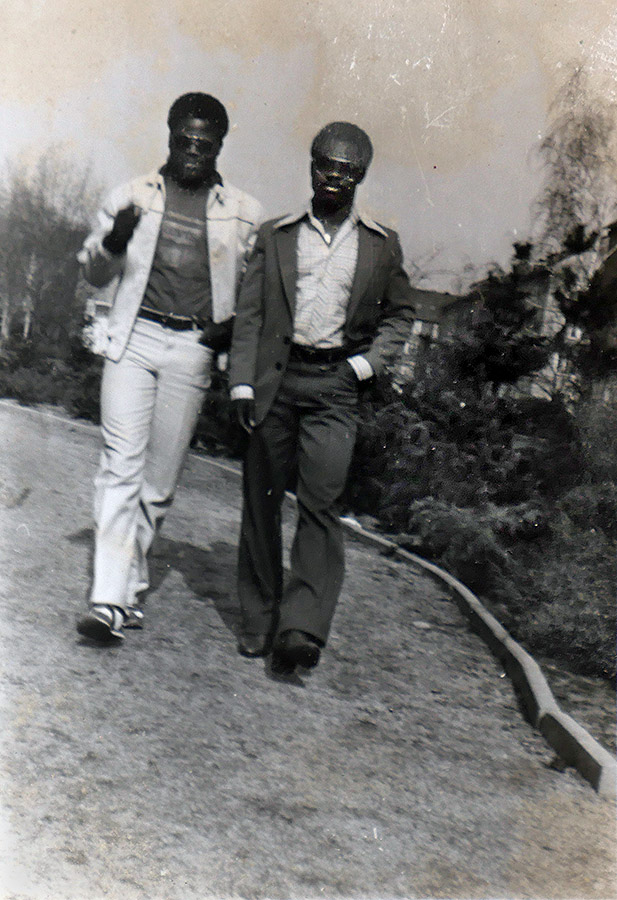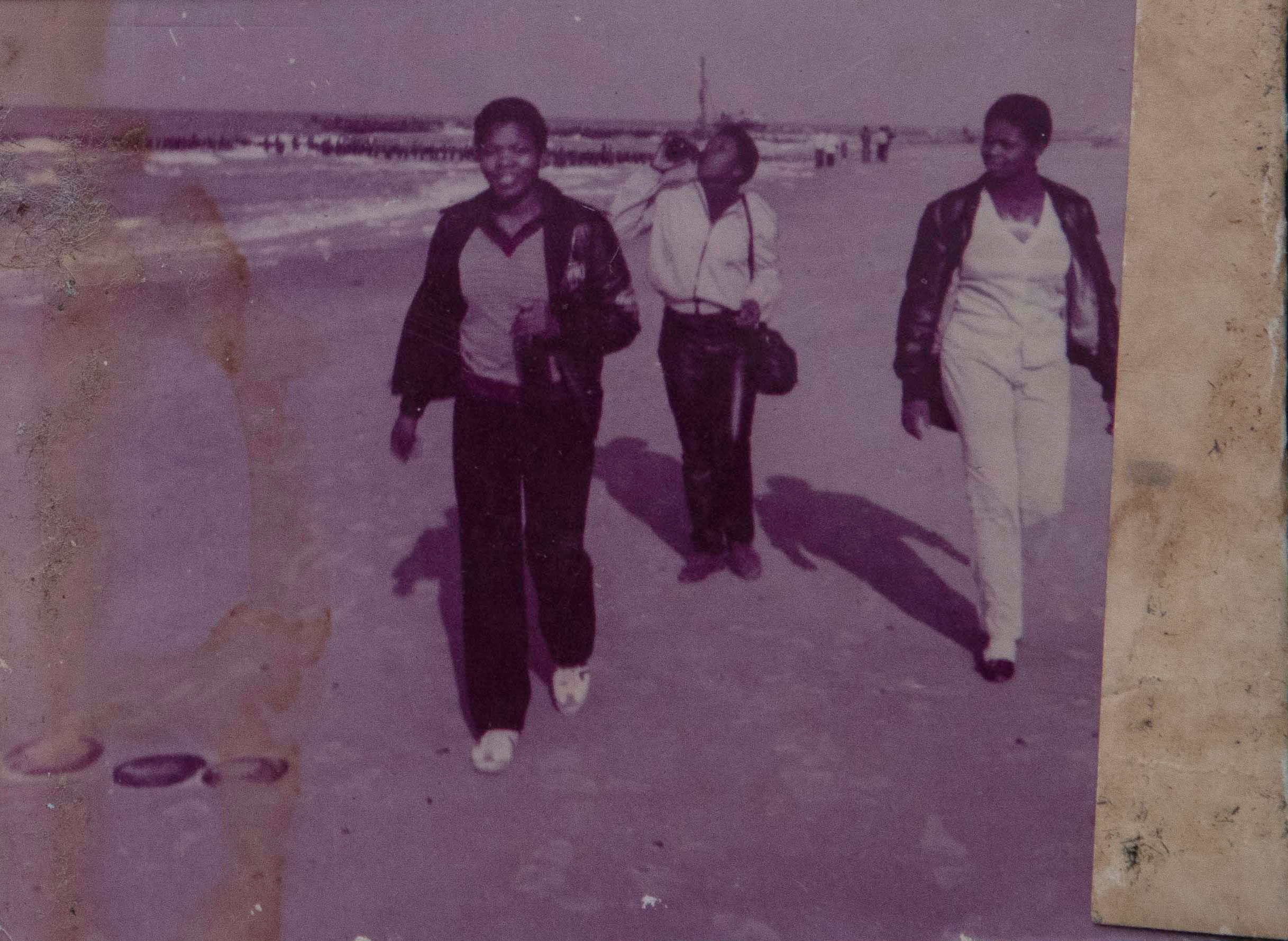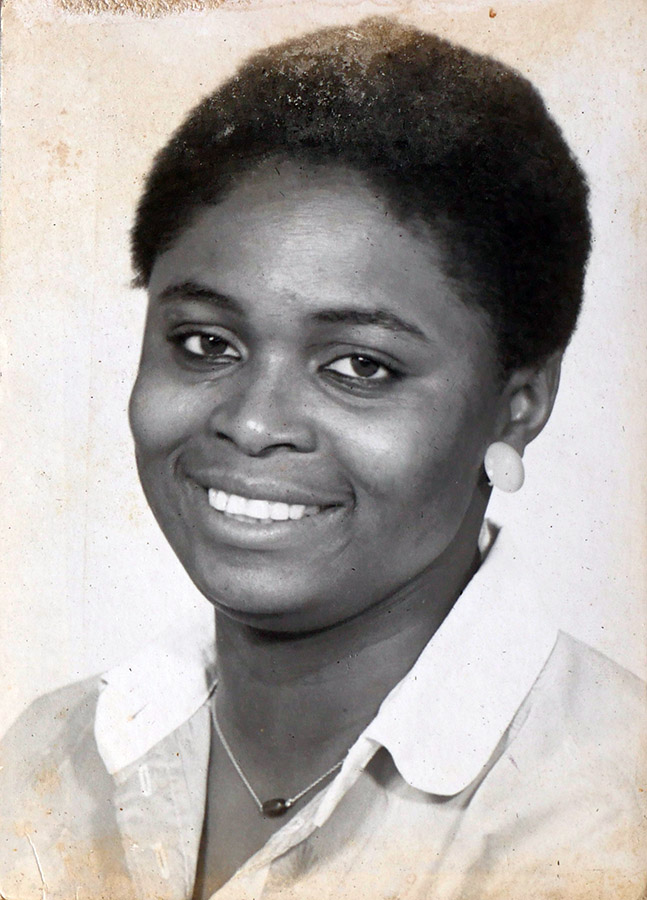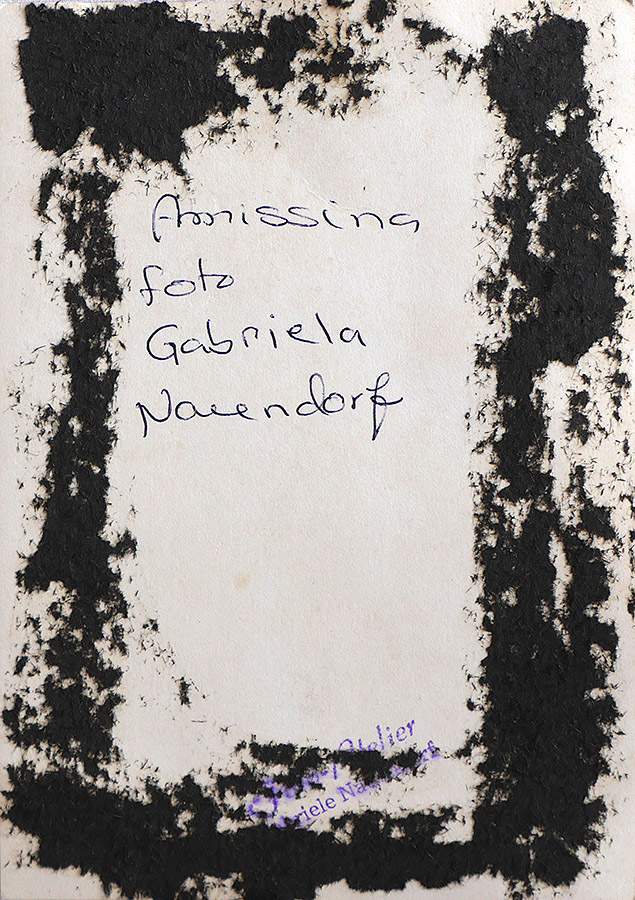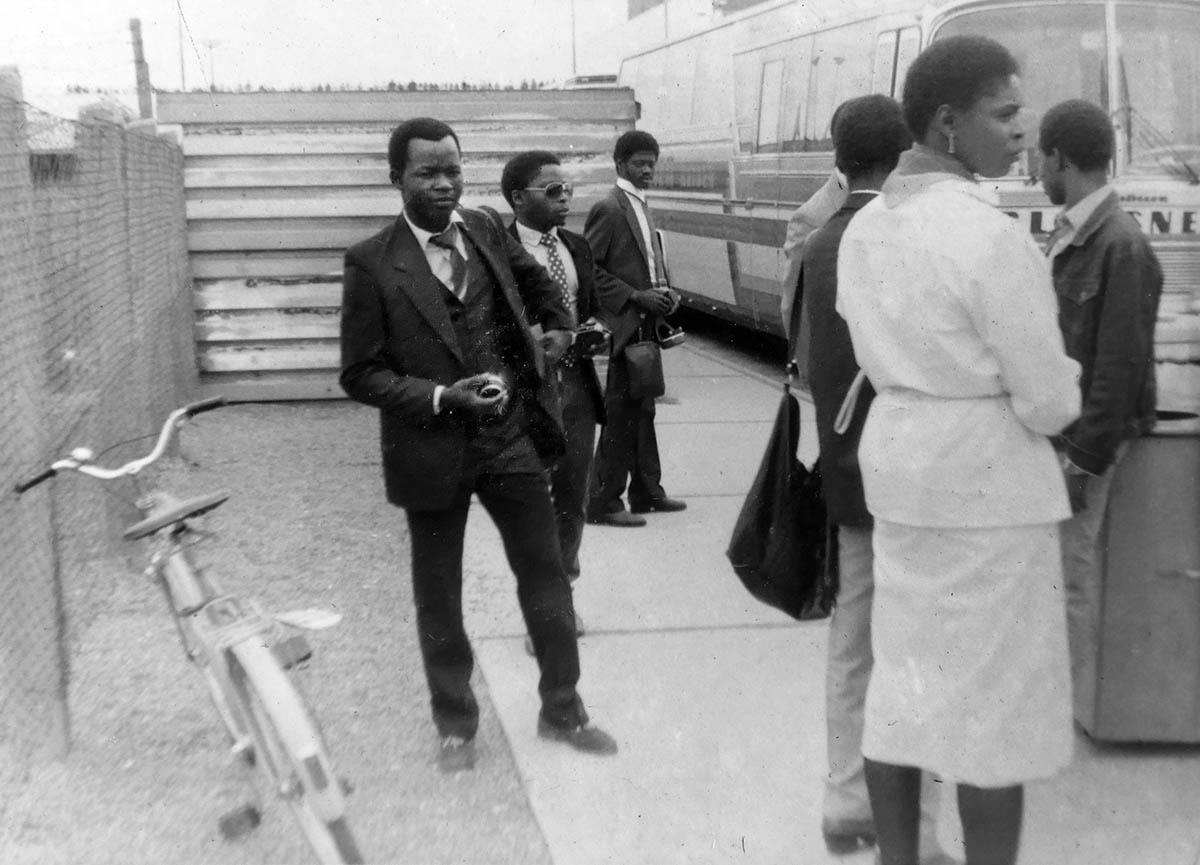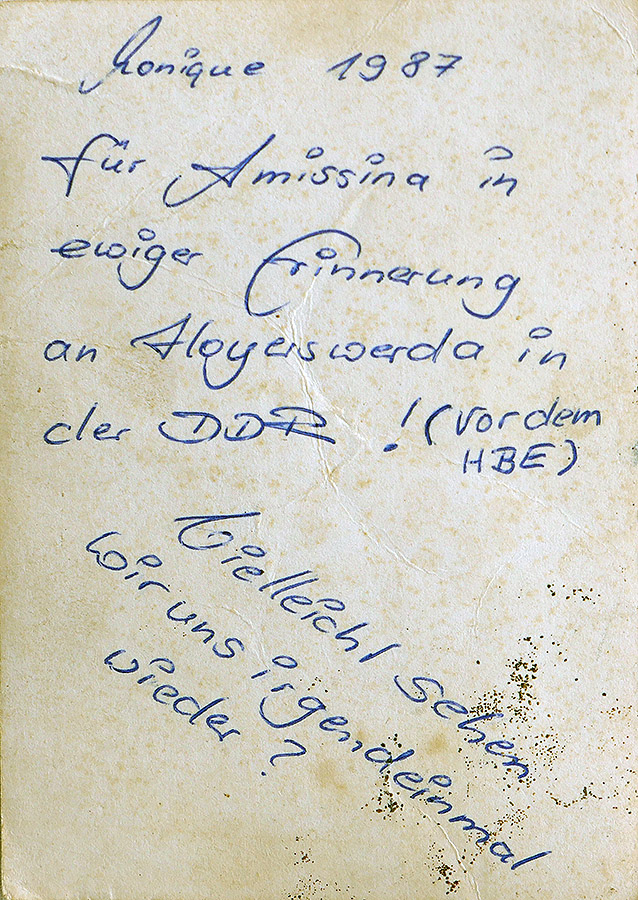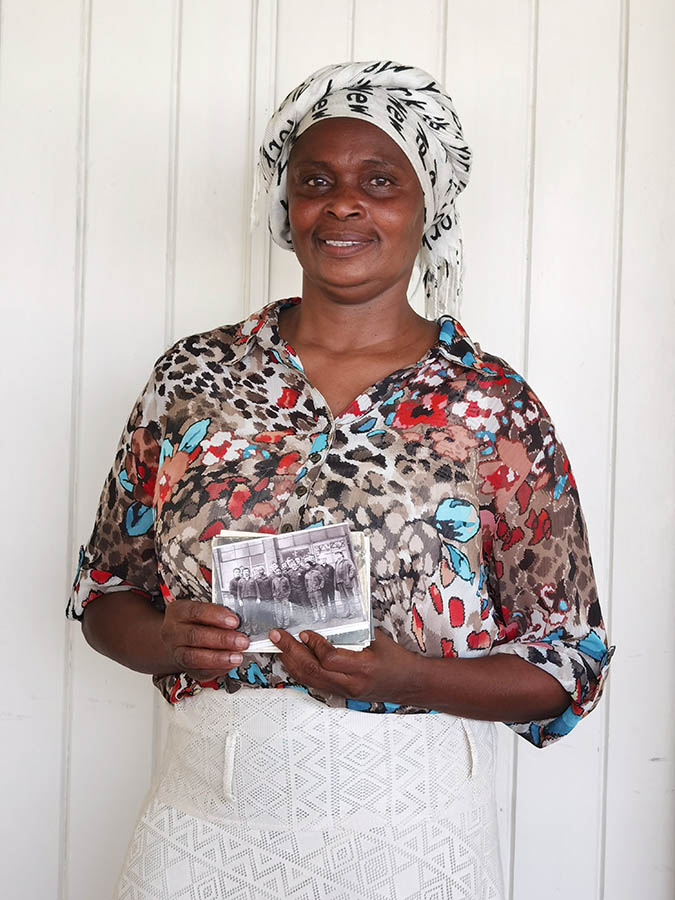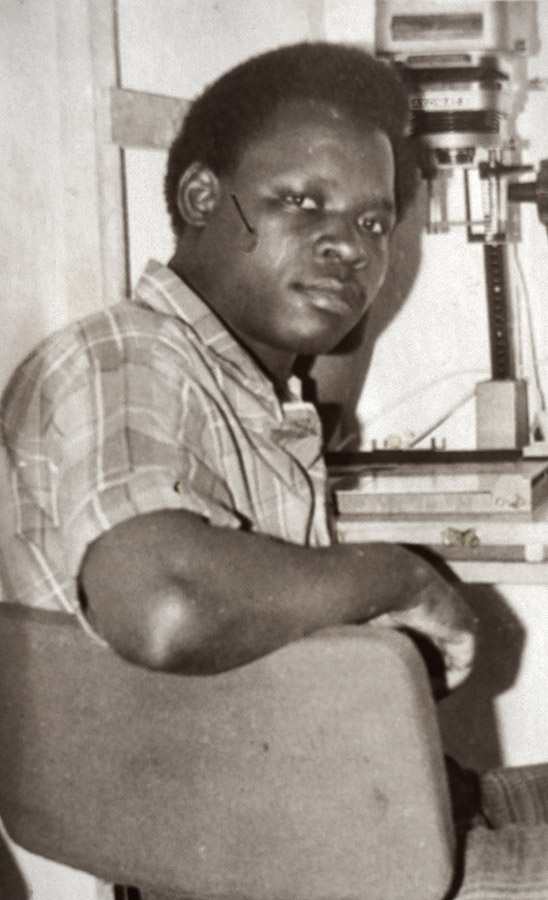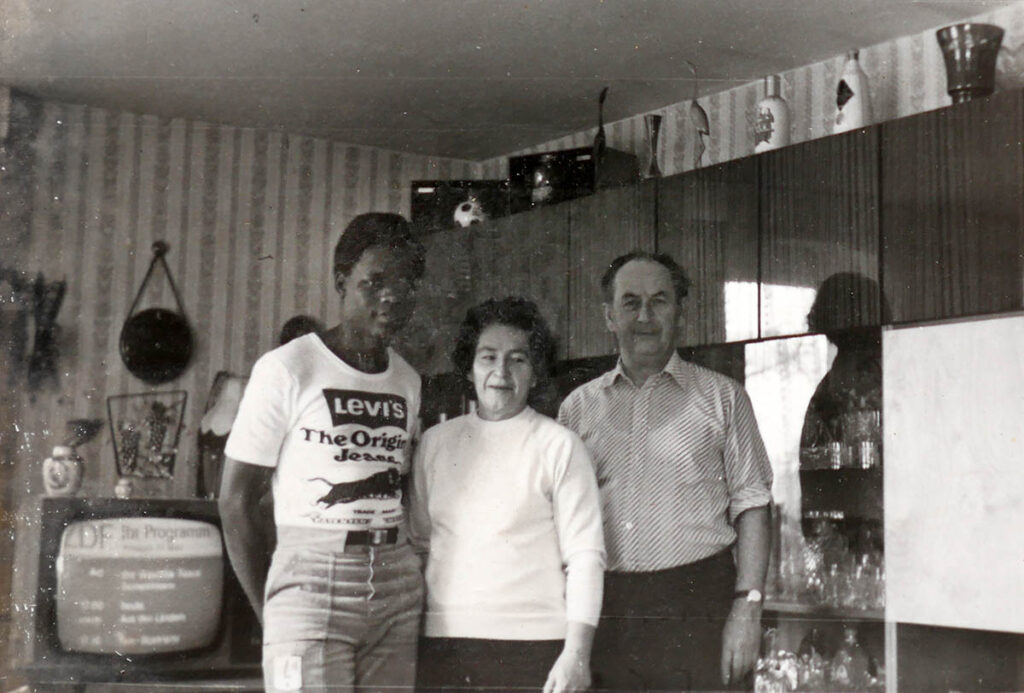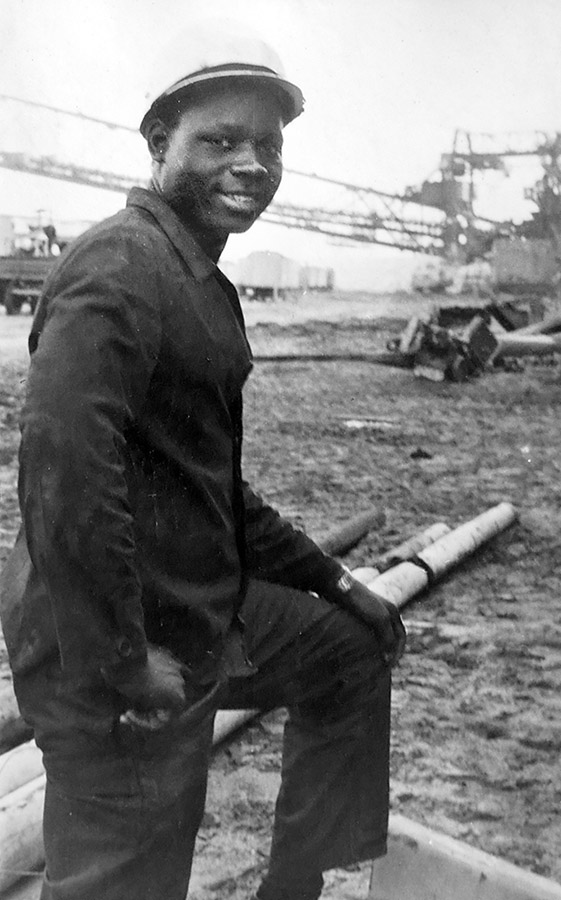Amissina Namagere Selemane
Amissina Namagere Selemane comes to Germany in 1980, at first to Altenburg in Thuringia. The then 23-year-old has two children, whom she leaves in the care of her parents in Mozambique. She is trained as a motor vehicle electrician at the VEB Braunkohlenwerk (Brown Coal Plant) Regis. Later on she lives in Hoyerswerda.
Military drill first
Amissina Namagere Selemane grows up in the north of Mozambique, in Pemba. Like all future Mozambican contract workers, she has to undergo several months of military training in the capital Maputo in preparation for her assignment to the GDR. Many of her colleagues suffer badly from the drill, and some are sent home again when they cannot meet the tough physical requirements. “Especially for the men this training was very hard,” she recalls. All she knows is that she will go to Germany, where she will work and train. The young people neither know in which city they will live, nor for which profession they will train.
Off to East Berlin
On 20 October 1980, Amissina Namagere Selemane boards a plane for the first time in her life and takes off for East Germany. There are 35 men and 15 women in her group. From East Berlin they continue to Altenburg in Thuringia, where she is employed at VEB Braunkohlenwerk Regis. There she will stay until 1985 and train as a motor vehicle electrician. Amissina enjoys working at the plant, where she feels respected and supported.
I was proud to learn a real profession like a man.
Amissina Namagere Selemane, Maputo 2021
Longing to belong
Immediately following their arrival, the contract workers are given a health check-up at the hospital in Regis-Breitingen. On this occasion, Amissina makes the acquaintance of a nurse and befriends her. Amissina often spends the weekends with her and her husband. “There are moments in life when it is difficult. Then God sends you guardian angels,” Amissina says in memory of this couple.
Fraternity of Peoples in kindergarten
Amissina Namagere Selemane and her colleagues regularly receive invitations from kindergartens and schools. In the name of socialist Fraternity of Peoples, they are asked to talk to German children about Mozambique. She enjoys these visits, which bring a lot of variety. Also, she has a good relationship with the offspring of a colleague. With her own children, however, she has hardly any contact. Phone calls are impossible and mail rarely arrives. Amissina tries to bring her children to Germany. Her request is rejected by both the Mozambican and the German authorities.
I yearned for Mozambique. Being with children helped me.
Amissina Namagere Selemane, Maputo 2021
Second Stop: Hoyerswerda
In 1985, her labor contract is terminated and for the first time in four years, Amissina flies to Mozambique for a few weeks. Upon her departure, it is already clear that she will be back. Her new assignment is in the lignite region around Cottbus in the VEB Braunkohlenkombinat Welzow. She is now accommodated in a residential home for contract workers in Clara-Zetkin-Straße in Hoyerswerda.
This is where she meets her future boyfriend Antonio. From now on, she is out and about with a partner. There are many mixed couples in Hoyerswerda, but always Mozambican men and German women. “I don’t know if the Germans lacked the courage. They talked to us, but made no advances,” Amissina remembers.
She often goes on weekend trips with Mozambican colleagues. And Amissina makes friends with the photographer Gabriela Nauendorf. Many photos and portraits of Mozambican contract workers emerge from her studio.
Coming home
In 1988, the second employment contract ends. Amissina Namagere Selemane returns to Mozambique, not least because she does not want to lose contact with her children completely. Thus she is spared the racist pogrom-like attacks by neo-Nazis and citizens on the Mozambicans’ residential home in Hoyerswerda in 1990 and 1991.
In Mozambique she can’t find work in her profession and has to scrape by with odd jobs. Like many of the GDR returnees, she struggles against poverty. Today she lives with her grandchildren in Maputo, Mozambique.
Credits:
Catarina Simão conducted the interview in Maputo in 2021,
Text: Julia Oelkers
Research and research protocol photos: Catarina Simão, Julia Oelkers
